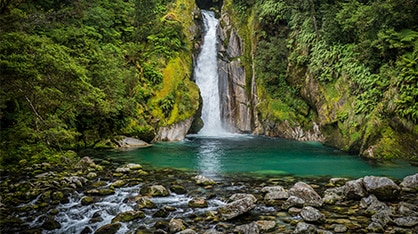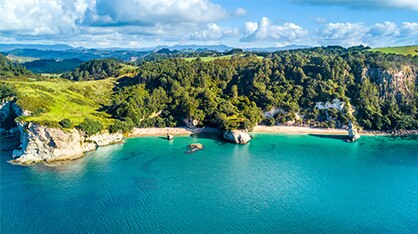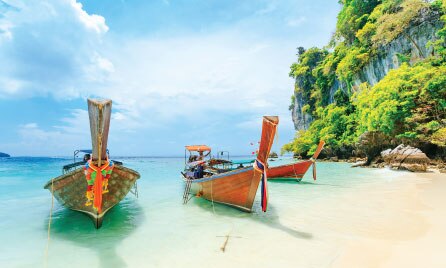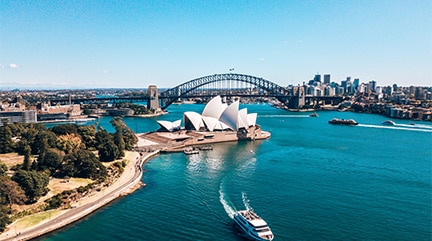- text
-
† For up to 12 months after the illness or injury first occurs.
New Zealand travel guide.
New Zealand, with its breathtaking landscapes, thrilling adventures, and unique culture, beckons Australian travellers seeking an unforgettable escape. Whether you're dreaming of hiking through pristine national parks, skiing down snow-capped mountains, or indulging in world-class food and wine, New Zealand has something for everyone.
This guide addresses the top questions Australians have about travelling to New Zealand, helping you plan your perfect Kiwi adventure.
Travel Insurance | 5 minute read | 26 November 2024
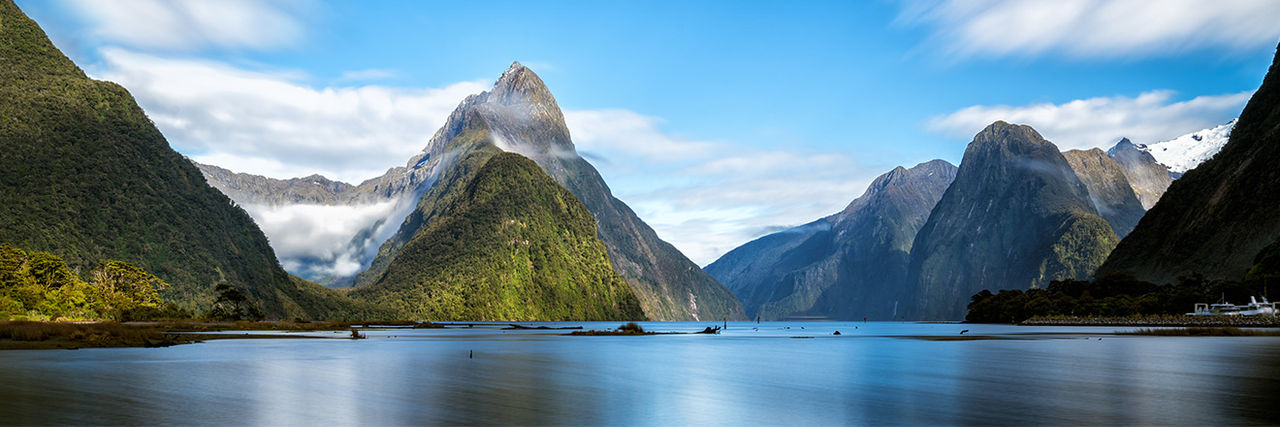
New Zealand travel tips for Aussies.
Do I need a visa?
Australian citizens travelling on an Australian passport do not need an NZeTA (New Zealand Electronic Travel Authority) or visitor visa. However, it's always a good idea to double-check the , as rules can change.
What is the best time to visit New Zealand?
- Shoulder seasons (spring and autumn): Offer pleasant weather, fewer crowds, and lower prices.
- Summer (December-February): Ideal for swimming, hiking, and outdoor activities, but expect higher prices and more tourists.
- Winter (June-August): Perfect for skiing and snowboarding in the South Island, but some areas may be inaccessible due to snow.
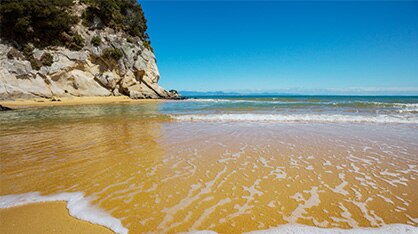
Everyday Travel Insurance coverage for New Zealand.
Everyday Travel Insurance offers a range of plans that may suit your needs, from basic cover to comprehensive options with higher coverage limits for medical expenses, cancellations, and more.
What is included in the cover.
Overseas medical expenses.†
Luggage and personal effects.#
Medical evacuation and repatriation.
Rental vehicle excess.~
Emergency travel & accommodation expenses.
Travel delay.
Replacement passport and travel documents.
Cancellation or holiday deferment costs.~
Subject to terms, conditions, limitations and exclusions. Benefit limit amounts vary by level of cover. Above is a summary only. Please read the Product Disclosure Statement (PDS), Financial Services Guide (FSG) and Target Market Determination (TMD) for full terms, conditions, limitations and exclusions that apply.
Consider a Travel Insurance policy that suits your trip.
New Zealand accommodation.
Where to stay in New Zealand?
New Zealand caters to every taste and budget, from hotels, motels, holiday homes, backpacker hostels, and luxury lodges to suit your budget and travel style. Consider your itinerary and desired activities when choosing your base.
New Zealand must-see attractions and activities.
What are the must-do activities and attractions in New Zealand?
New Zealand offers a playground of exciting activities for every type of traveller. From epic road trips and challenging hikes to cultural encounters and adrenaline-pumping thrills, here are some must-do experiences to add to your itinerary:
Road tripping.
Hit the open road and explore New Zealand at your own pace. Popular routes include the Southern Scenic Route and the Thermal Explorer Highway.
Discover hidden gems, charming towns, and breathtaking landscapes as you navigate the roads.
TIP: Download offline maps and navigation apps, as you may encounter areas with limited service

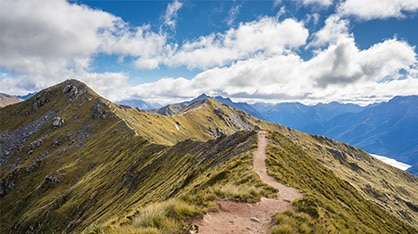
Hiking the Great Walks.
Challenge yourself on one of New Zealand's Great Walks, multi-day hikes through some of the country's most spectacular scenery.
Immerse yourself in the wilderness, traversing diverse terrain, from volcanic landscapes and alpine meadows to pristine forests and coastal trails
TIP: Pack for all weather conditions, as New Zealand's weather can be unpredictable. Layers are key!Check track conditions and weather forecasts before you go, and be prepared for challenging terrain.
Skiing and snowboarding.
Head to the South Island for world-class skiing and snowboarding in Queenstown, Wanaka, and Canterbury.
New Zealand's ski season typically runs from June to October, with the best snow conditions found in July and August.
TIP: Consider a lesson if you're a beginner or want to improve your skills. Protect yourself from the sun with sunscreen, sunglasses, and lip balm, even on cloudy days.
Everyday Travel Insurance offers snow sports cover as an add-on option, available exclusively for those who have purchased the Comprehensive or Frequent Traveller plans.


Experiencing Māori culture.
Learn about Māori traditions, history, and art through cultural performances, visits to marae (meeting houses), and encounters with local Māori communities.
Gain a deeper understanding of New Zealand's indigenous culture, its connection to the land, and its rich artistic heritage. Many Māori cultural experiences offer the chance to participate in traditional activities like weaving, carving, and cooking.
TIP: Attend a cultural performance to experience Māori music, dance, and storytelling.
Indulging in food and wine.
Embark on a culinary journey, sampling fresh seafood, award-winning wines, and local delicacies in regions like Marlborough, Hawke's Bay, and Central Otago
Discover diverse flavours, from gourmet restaurants and vineyard cafes to casual eateries and food trucks.
TIP: Embark on a wine tour in regions like Marlborough, Hawke's Bay, or Central Otago to sample local wines and learn about the winemaking process. Try a hāngī, a traditional Māori feast cooked in an underground oven.

Related articles.
Important information.
~ Subject to the terms, conditions, limits and exclusions of your policy.
- text
-
# Sub-limits apply.
- text
-
Woolworths Group Limited, ABN 88 000 014 675, AR 245476 is an authorised representative of nib Travel Services (Australia) Pty Ltd (nib), ABN 81 115 932 173, AFSL 308461 and act as nib's agent and not as your agent. This is general advice only. Before you buy, you should consider your needs, the Product Disclosure Statement (PDS), Financial Services Guide (FSG) and Target Market Determination (TMD) available from us. This insurance is underwritten by Pacific International Insurance Pty Ltd, ABN 83 169 311 193.

